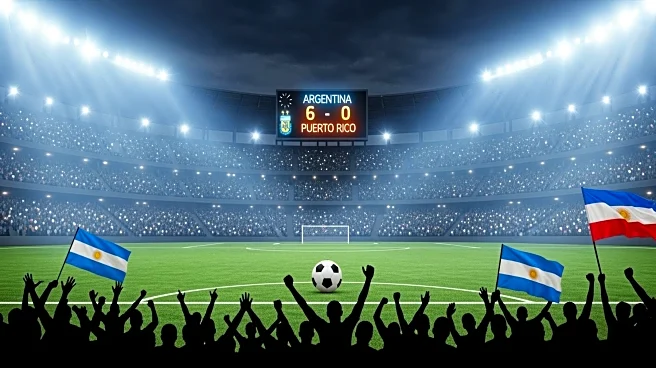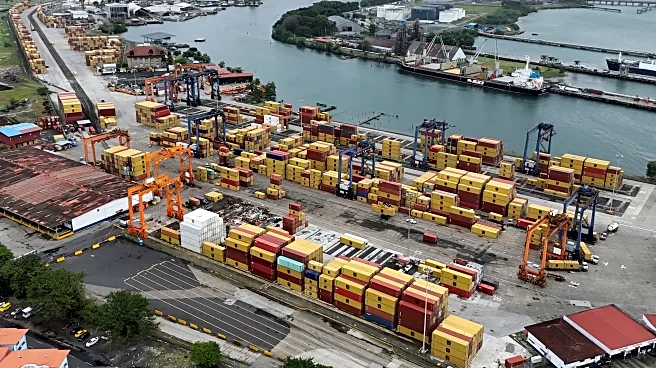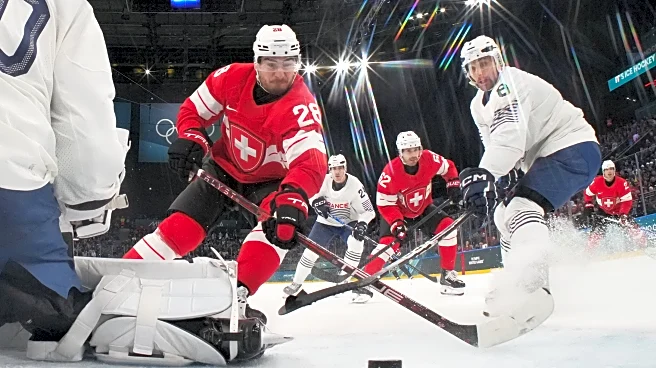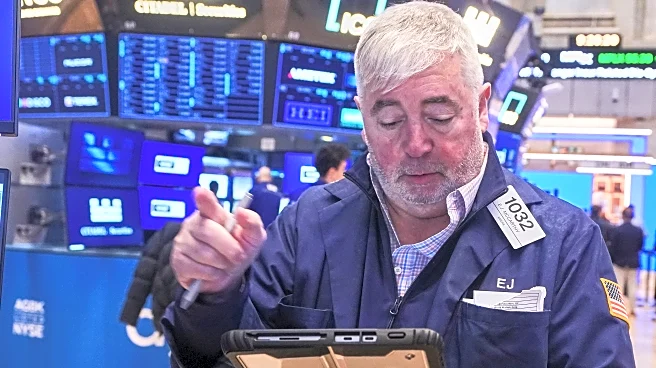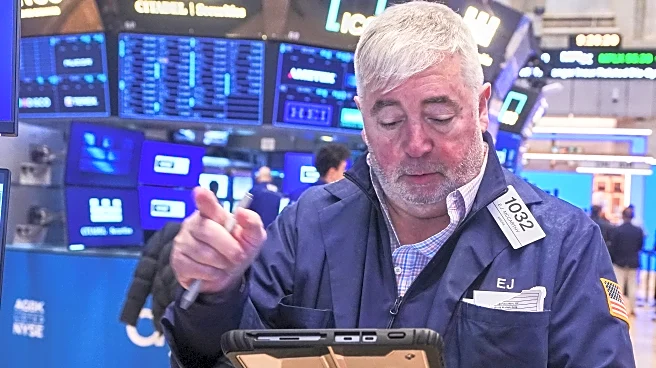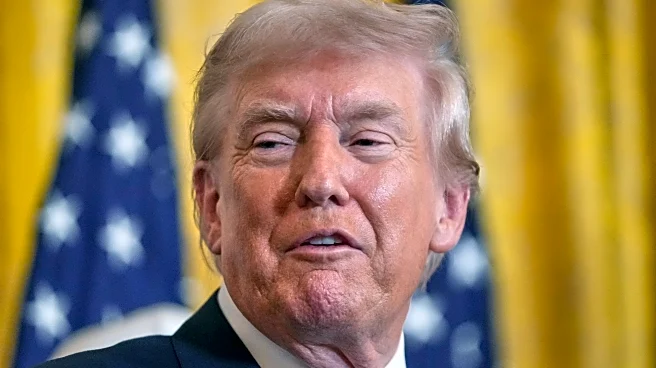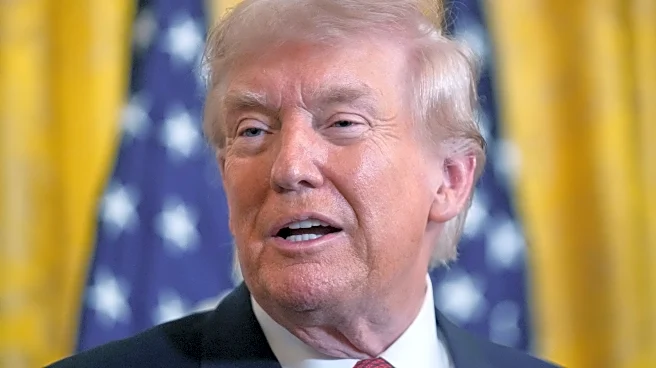What's Happening?
Argentina, the reigning World Cup champion, defeated Puerto Rico 6-0 in an international friendly match held in Fort Lauderdale, Florida. Originally scheduled to take place in Chicago, the match was relocated
due to low ticket sales and an immigration crackdown in the Chicago area. Lionel Messi, playing on his home field with Inter Miami, contributed two assists and initiated a play leading to another goal. The match saw Argentina, ranked third globally by FIFA, face Puerto Rico, ranked 155th, with Puerto Rico fielding some college players. Despite the mismatch, Puerto Rico's goalkeeper, Sebastian Cutler, made notable saves against Messi. The match is part of Argentina's preparations for the upcoming World Cup, set to be hosted in the U.S., Mexico, and Canada next year.
Why It's Important?
The relocation of the match highlights the impact of local socio-political issues, such as immigration policies, on international sports events. The game also underscores the global appeal of soccer and figures like Messi, who can draw crowds even in less competitive matchups. For Argentina, the match serves as a crucial preparation for the World Cup, allowing the team to refine strategies and player coordination. The event also reflects the broader dynamics of sports diplomacy, where international matches can be influenced by political and economic factors, affecting local economies and community engagement.
What's Next?
Argentina will continue its preparations for the World Cup, focusing on refining team dynamics and strategies. The relocation of the match may prompt discussions among sports organizers about the influence of political and social issues on event planning. Additionally, President Trump's comments about potentially relocating World Cup matches could lead to further scrutiny and debate over the hosting arrangements and security measures for the tournament. Stakeholders, including local governments and sports federations, may need to address these concerns to ensure successful event execution.
Beyond the Headlines
The relocation of the match due to immigration issues highlights the intersection of sports and politics, where global events can be affected by local policies. This situation may prompt discussions on the ethical responsibilities of sports organizations in addressing socio-political challenges. Furthermore, the match serves as a reminder of the cultural significance of soccer, which can bridge diverse communities despite political tensions. The event also illustrates the potential for sports to influence public perception and policy discussions, particularly in areas like immigration and international relations.
